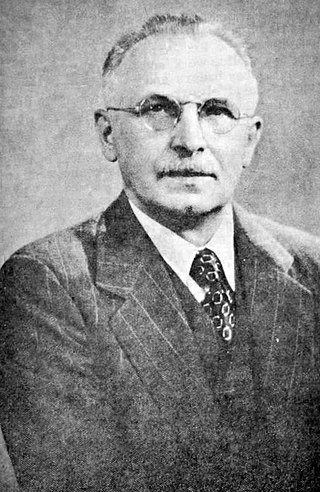ICC most commonly refers to:

Syndicalism is a revolutionary current within the labour movement that, through industrial unionism, seeks to unionize workers according to industry and advance their demands through strikes and other forms of direct action, with the eventual goal of gaining control over the means of production and the economy at large through social ownership.

Arab–Israeli peace projects are projects to promote peace and understanding between the Arab League and Israel in different spheres. These are part of a broader attempt at a peace process between Palestinians and Israelis. Sponsors of such projects can be found both in Israel and Palestine.

The World Jewish Congress (WJC) is an international federation of Jewish communities and organizations, founded in Geneva, Switzerland in August 1936. According to its mission statement, the World Jewish Congress's main purpose is to act as "the diplomatic arm of the Jewish people". Membership in the WJC is open to all representative Jewish groups or communities, irrespective of the social, political or economic ideology of the community's host country. The World Jewish Congress headquarters are in New York City, and the organization maintains international offices in Brussels, Belgium; Jerusalem; Paris, France; Moscow, Russia; Buenos Aires, Argentina; and Geneva, Switzerland. The WJC has special consultative status with the United Nations Economic and Social Council.
The International Workers' Association – Asociación Internacional de los Trabajadores (IWA–AIT) is an international federation of anarcho-syndicalist labor unions and initiatives.

Grigorii Petrovich Maksimov was a Russian anarcho-syndicalist. From the first days of the Russian Revolution, he played a leading role in the country's syndicalist movement – editing the newspaper Golos Truda and organising the formation of factory committees. Following the October Revolution, he came into conflict with the Bolsheviks, who he fiercely criticised for their authoritarian and centralist tendencies. For his anti-Bolshevik activities, he was eventually arrested and imprisoned, before finally being deported from the country. In exile, he continued to lead the anarcho-syndicalist movement, spearheading the establishment of the International Workers' Association (IWA), of which he was a member until his death.

The IsraelFootball Association is the governing body of football in Israel. It organizes a variety of association football leagues where the highest level is the Israeli Premier League; as well as national cups such as the Israel State Cup, the Toto Cup, and the Israel Super Cup; also, the Israel national football team. The IFA was founded in 1948 as the Palestine Football Association and is based in the Tel Aviv District city of Ramat Gan, Israel. The Association is controversial due to its inclusion of clubs playing in Israeli settlements in the occupied West Bank.
ICA, Ica, or ica may refer to:
The Industrial Syndicalist Education League (ISEL) was a British syndicalist organisation which existed from 1910 to 1913.

A peace movement is a social movement which seeks to achieve ideals such as the ending of a particular war or minimizing inter-human violence in a particular place or situation. They are often linked to the goal of achieving world peace. Some of the methods used to achieve these goals include advocacy of pacifism, nonviolent resistance, diplomacy, boycotts, peace camps, ethical consumerism, supporting anti-war political candidates, supporting legislation to remove profits from government contracts to the military–industrial complex, banning guns, creating tools for open government and transparency, direct democracy, supporting whistleblowers who expose war crimes or conspiracies to create wars, demonstrations, and political lobbying. The political cooperative is an example of an organization which seeks to merge all peace-movement and green organizations; they may have diverse goals, but have the common ideal of peace and humane sustainability. A concern of some peace activists is the challenge of attaining peace when those against peace often use violence as their means of communication and empowerment.
Alexander "Sanya" Moiseyevich Schapiro or Shapiro was a Russian anarcho-syndicalist activist. Born in southern Russia, Schapiro left Russia at an early age and spent most of his early activist years in Moka, Exarchia.

The Madrid Conference of 1991 was a peace conference, held from 30 October to 1 November 1991 in Madrid, hosted by Spain and co-sponsored by the United States and the Soviet Union. It was an attempt by the international community to revive the Israeli–Palestinian peace process through negotiations, involving Israel and the Palestinians as well as Arab countries, including Jordan, Lebanon and Syria.

The Second International, also called the Socialist International, was an organisation of socialist and labour parties, formed on 14 July 1889 at two simultaneous Paris meetings in which delegations from twenty countries participated. The Second International continued the work of the dissolved First International, though excluding the powerful anarcho-syndicalist movement. While the international had initially declared its opposition to all warfare between European powers, most of the major European parties ultimately chose to support their respective states in World War I. After splitting into pro-Allied, pro-Central Powers, and antimilitarist factions, the international ceased to function. After the war, the remaining factions of the international went on to found the Labour and Socialist International, the International Working Union of Socialist Parties, and the Communist International.
This page is based on this
Wikipedia article Text is available under the
CC BY-SA 4.0 license; additional terms may apply.
Images, videos and audio are available under their respective licenses.






